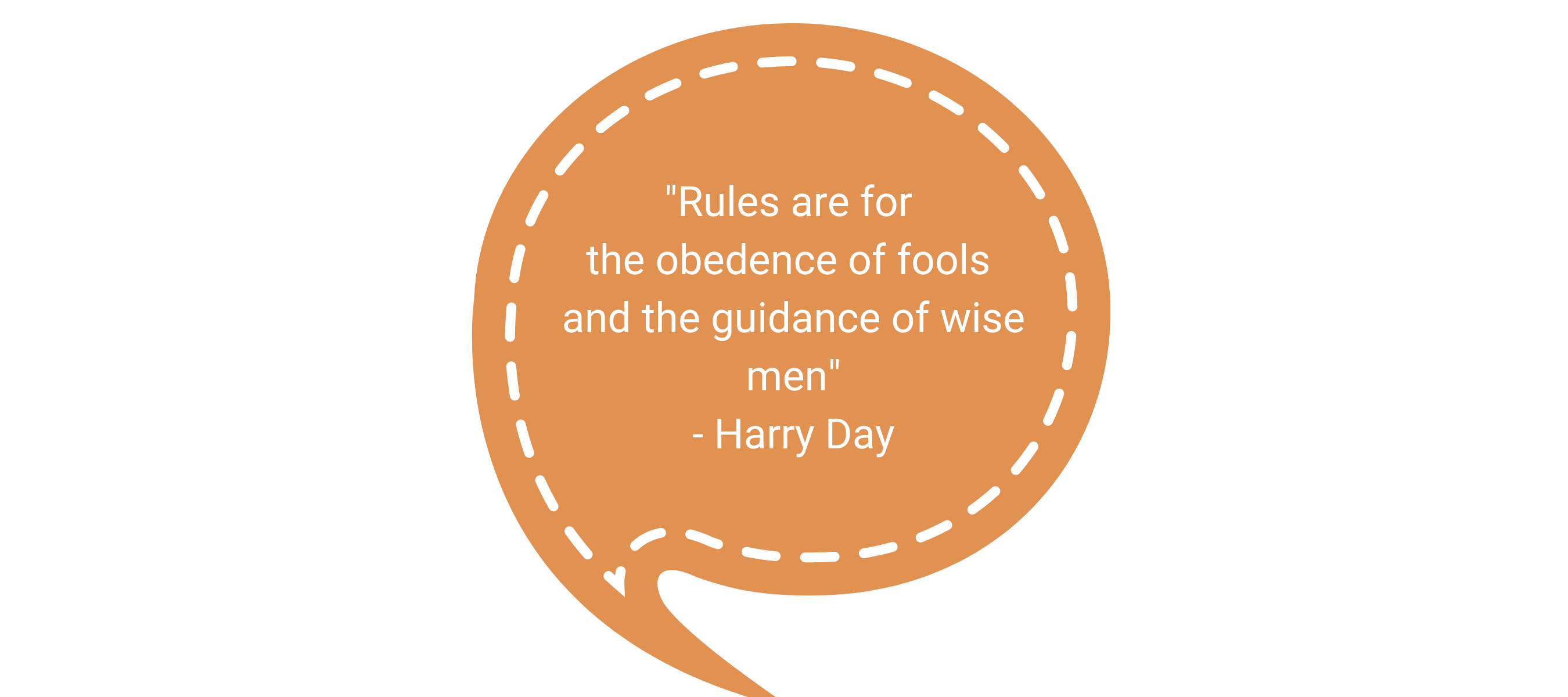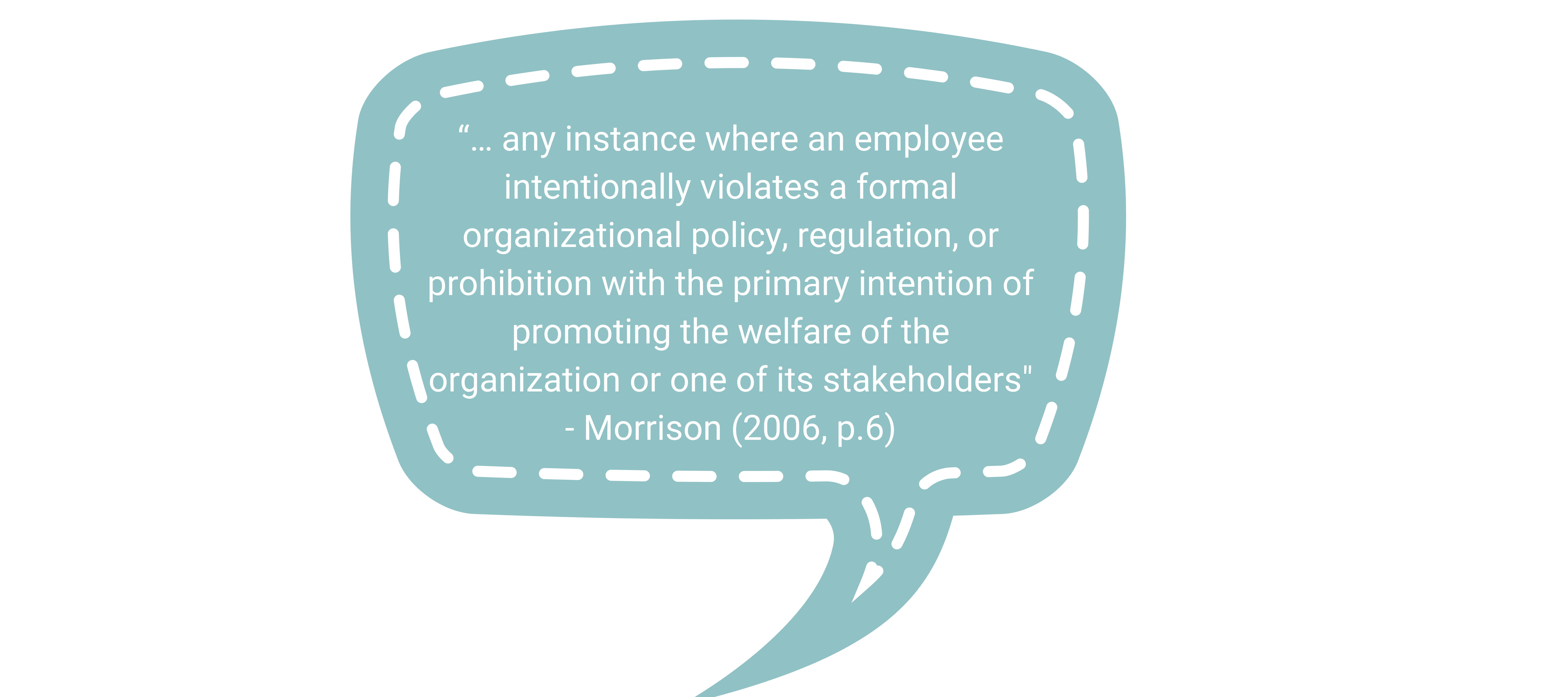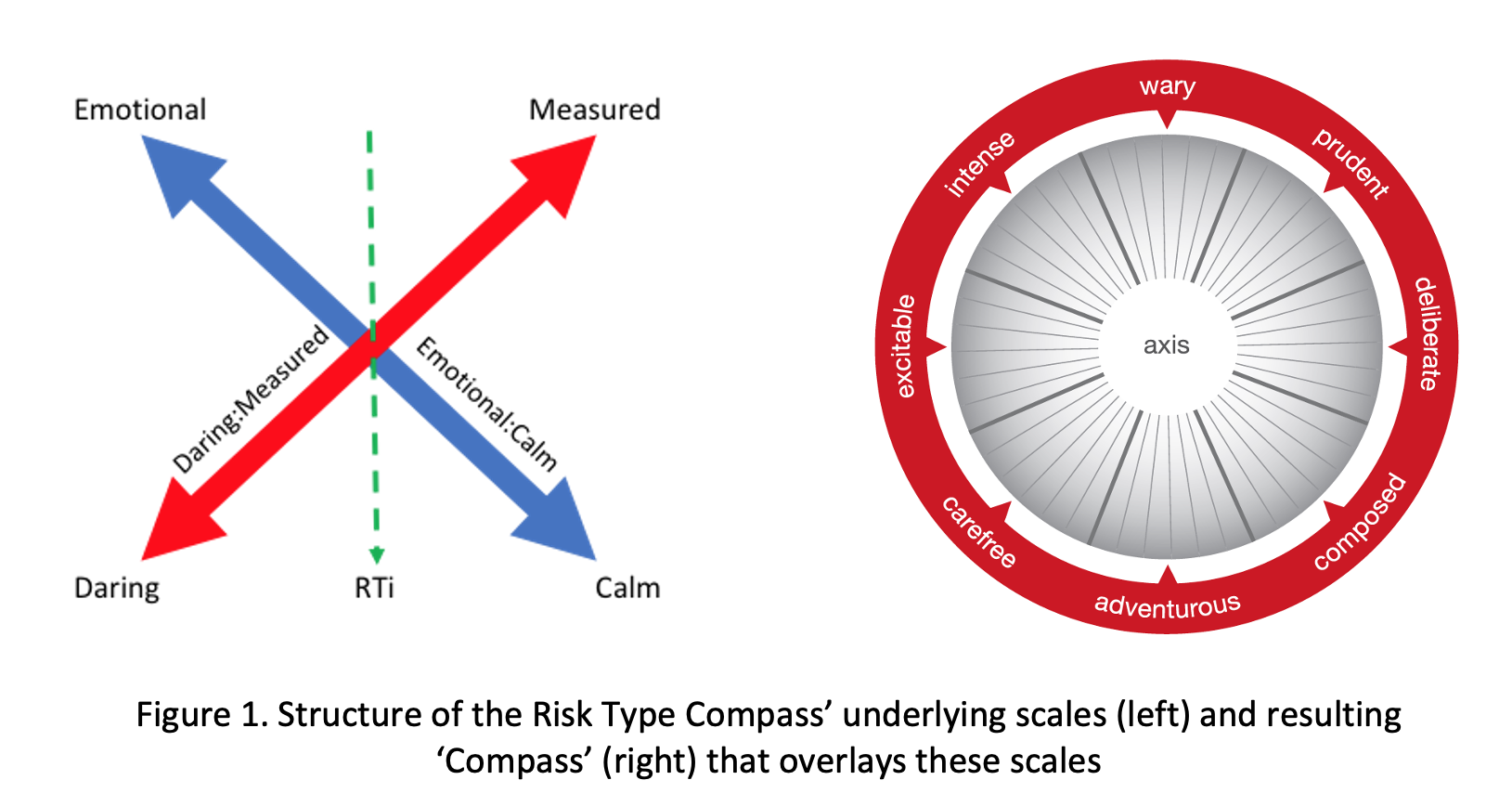Psychological Consultancy Ltd continually work with researchers and academics to further develop the sizeable evidence base informing our psychometrics. In one such collaboration with Aston University’s Alex Deaves, we were curious to see if our expertise in personality measurement could be used to predict organisational (pro social) rule breaking. Here’s what happened…

Rules and policy are part of organisational life. They are designed to influence, standardise and control various aspects of workforce behaviour, including legal compliance, customer service and interpersonal interactions. Adoption to certain workplace rules will be considered non-negotiable, with examples including use of safety equipment and adherence to data protection law. Other rules will be more flexible, or defined with arbitrary criteria, and may be enforced less diligently as a result.
External influences play a major role in rule breaking. Commercial competition, customer dissatisfaction, or major unprecedented events may generate problems that organisational policy is ill-equipped to address, leaving staff with little option but to stray from company guidelines. Judging subsequent actions using a right/wrong binary can be unhelpful and fail to account for nuance. In some instances, employers may even endorse staff rule breaking as a desirable act of initiative under difficult circumstances.
Whilst external influences are significant, they fail to account for the diversity of human behaviour. People can act very differently under similar circumstances, and rule breaking is no exception. As personality psychologists, we are keen to understand if and how we can predict this aspect of human behaviour in the face of such variety.
The first question to ask is ‘why do people choose to break the rules?’

As with many psychological questions, the answer is ‘it depends’. Bending or breaking rules in pursuit of ‘win-win’ outcomes for all would be perceived as drastically different to breaking the rules for personal gain at someone else’s expense. This led researchers to determine whether employees are motivated by an intention to perform ‘constructive’ or ‘destructive’ deviance. Whilst the associated behaviours may be similar in their shared emphasis on deviating from rules and norms, Dahling, Chau, Mayer, and Gregory (2012) demonstrated that the intention of these behaviours is not necessarily counterproductive.
This also raises another important distinction: whether rule-breakers act in their own self-interest or the interest of others. This marked an important development in the organisational literature, which had generally branded the breaking of rules as ‘deviant behaviour ascribed to employees’ anger, self-interest or perceived alienation’. This perspective has been challenged by Morrison (2006) with the introduction of the term ‘pro-social rule breaking’. Viewing rule breaking through the lens of pro-social behaviour, Morrison (2006) defined ‘pro social rule breaking’ (PSRB) as:

This provides an important perspective on the motivation of employees that act outside of organisational guidelines. PSRB can emerge when employees are forced into potentially daily choices that require them to either follow the rules or to deviate in the interest of effectively responding to perceived demands. People who perceive a potential act of rule breaking as constructive and pro social are more likely to justify and ultimately, enact it.
This helped psychologists address a long-standing obstacle in self-reported measurements of rule-breaking behaviour; people who knowingly break rules are not necessarily prepared to report this in surveys. Acknowledging underlying constructive and pro-social justifications for rule breaking facilitated the development and validation of Dahling et al.’s (2012) PSRB scale. After excluding counter-productive work behaviour, subsequent scale development and factor analysis resulted in 13 items grouped into three categories:
Efficiency – to more efficiently perform job duties for the organisation
Co-Worker Aid – to help another employee with job-related duties
Customer Aid – to provide better customer service
Having identified our measure of PSRB, the next step was to pair it with a personality assessment. We chose the Risk Type Compass, which collects a range of metrics (see Figure 1) including scales focusing on Emotion (Emotional:Calm) and Cognition (Daring:Measured). The result is two distinct and powerful predictors of decision making and risk-taking behaviour that we hypothesised would predict participants’ propensity for PSRB behaviour.
When combined, these scales provide an insightful summary of risk-taking behaviour in the form of a ‘Risk Tolerance Index’ and ‘Risk Type’. Our decision to combine these two variables enabled us to ask the following question: “Does ‘risk taking’ personality predict pro social rule breaking?” Early findings indicate a resounding ‘yes’!

As predicted, the PSRB had a sizeable relationship with the Risk Type Compass. This was most notably the case for the Daring:Measured scale, with participants closer to the ‘daring’ end of the spectrum significantly more likely to report pro social rule breaking. These will be individuals possessing greater personality-based tendencies for spontaneity and exploration alongside lower tendencies for perfectionism and conformity. This also supports the perception that rule breaking is a conscious choice that is influenced by an employee’s underlying personality. Analyses also indicated significant insight at the Risk Type level. Adventurous and Wary Risk Types were the most and least likely to report pro social rule breaking respectively, demonstrating their opposing positions on the compass also manifest as opposing positions on the PSRB scale.
Keen to learn more?
These findings represent a sneak peek into an ongoing research project that will be published with Alex Deaves later in 2021. The resulting white paper will provide a more in-depth look at these findings and their potential implications. Click here to register your email and receive the upcoming white paper as soon as it is published!
References
Dahling, J. J., Chau, S. L., Mayer, D. M., Gregory, J. B. (2012). Breaking rules for the right reasons? An investigation of pro-social rule breaking. Journal of Organizational Behavior, 33(1), 21-42.
Gino, F., Bazerman, M. H. (2009). When misconduct goes unnoticed: The acceptability of gradual erosion in others’ unethical behavior. Journal of Experimental Social Psychology, 45(4), 708-719.
Morrison, E. W. (2006). Doing the Job Well: An Investigation of Pro-Social Rule Breaking. Journal of Management, 32(1), 5-28.
